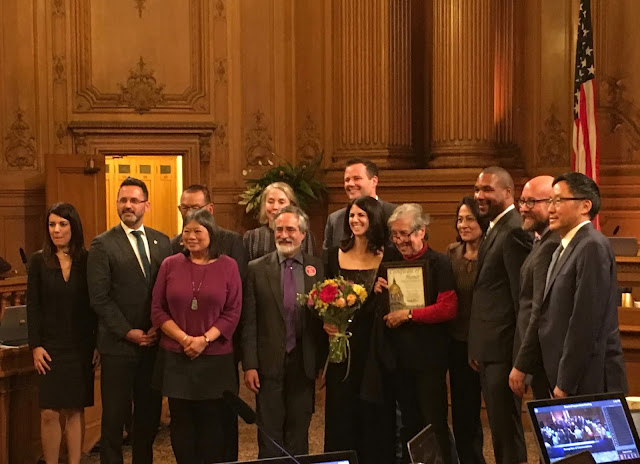Massing chose Erasmus and Luther as subjects because they seemed to embody an intellectual dichotomy he wished to explore. He explains in his introduction:
And right there, you have the reason why I both admire this book and experience it as problematic.Their rivalry represented the clash of not just two intellectuals but also of two worldviews -- the humanist [Erasmus], embracing the common bonds of humanity and the diversity of cultures and viewpoints within it, and the evangelical [Luther], stressing God's majesty and Christ's divinity and insisting that all recognize those truths as supreme and incontestable. The two schools remain with us today. The conflict between Erasmus and Luther marks a key passage in Western thinking -- the point at which these two fundamental and often conflicting traditions took hold. ...
Historians usually try to understand and portray their subjects within those subjects' own terms. Inevitably, historians' perspectives are influenced and shaped by their own times and concerns, but they try to keep themselves out of their stories of their subjects. Massing is doing something else altogether and he knows it.
The result is indeed a terrific story which Massing has given a vivid, erudite, and thought-provoking telling. Yet I can't imagine either Erasmus, Massing's clear hero, or Luther recognizing themselves at all in this book. And that makes me a little queasy.A journalist by trade, I have approached the subject much as I would a newspaper or magazine assignment. Rather than visit a far-off land, I have I have traveled to a different century ... Journalism, it is said, is the first draft of history; in writing about the Reformation, I am preparing perhaps the five-hundredth. Throughout, though, I have often felt the same surge of excitement I had while reporting a good story.
Nonetheless, I'm thrilled to have gone to the trouble of reading this 900 page opus. I'll just share a short list of insights and oddities I found worth learning and pondering.
- Travel in Europe including Britain was certainly arduous and the roads hazardous, but it was possible and far less encumbered by borders than at any subsequent time at least until the Schengen area under the European Union. Britain was very much integral to that cultural area.
- There was one clear career option for a man who wanted to be a scholar: join a monastery. Both men did; both men were poor candidates for a devout religious life for quite different reasons.
- Today Erasmus might have defined himself as gay; in his own homosocial but not homosexual culture, that was not an option.
- Today Luther's obsessive existential guilt might have caused him to be diagnosed as severely depressive; instead he irritated his monastic superiors by insisting on more than daily confessions.
- Both men had their mental furniture blown apart because of the new availability of ancient writings, Christian and Greek. They learned the languages they needed to explore the old in order to invent the new.
- Without the invention and spread of printing press technology, we would probably have never heard of either of these men.
- Thanks to printers, Erasmus was probably the first author to live off payments for his books. Copyright had not been invented, but it was worthwhile for a printer to keep a prolific, salable writer on something like a stipend.
- Luther's printed tracts gained him a popular following that encouraged German princes to protect him from being burned at the stake by popes as his reforming Bohemian predecessor Jan Hus had been.
- Though modern nations hadn't been invented yet, something like emerging German nationalism helped save Luther's skin. Popular resentment of papal taxes and corruption in German-speaking areas kept Luther safe from heretic hunters.
- Erasmus shrank from conflict more often than he engaged with his detractors; though Massing treats his intellect as heroic, he was a decidedly unheroic individual.
- Luther never left behind his origins as a poor boy from a hard-scrabble mining town. He was intemperate, doctrinaire, unreasonable and a bully. But he found something in the Bible that Christianity within the comfort zone of unchallenged European Christendom had lost sight of: the awe-full Godness of God.
- Both men were habitual, unquestioning, vicious anti-Semites.






































